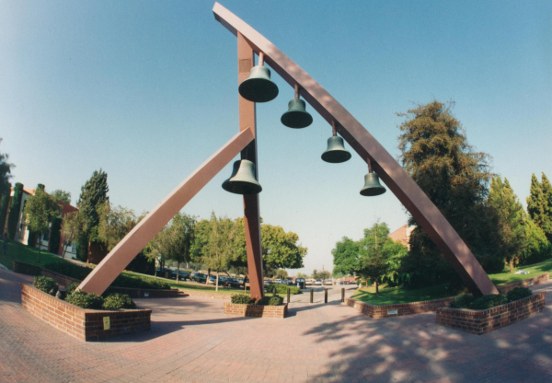podcast 188 – Dr. Paul W. Newman’s Spirit Christology – Part 2
“Then Jesus, filled with the power of the Spirit, returned to Galilee… He began to teach in their synagogues and was praised by everyone.”
“Then Jesus, filled with the power of the Spirit, returned to Galilee… He began to teach in their synagogues and was praised by everyone.”
Last time we looked at an exchange between Christian and Muslim apologists in the early 14th century, in which the Christian side, under pressure from longstanding Muslim accusations of polytheism, spells out the doctrine of the Trinity in a plainly modalistic way. This practice is ongoing, as we’ll see. Thomas F. Michel is a Jesuit priest and scholar who edited and translated the largest response… Read More »Islam-Inspired Modalism – Part 2
Can a historian conclude that Jesus thought he was God?
In this interesting presentation called “Yet Another Music City Miracle” pastor J. Dan Gill points out that the way evangelicals evangelize is incompatible with the old catholic tradition, famously asserted in the “Athanasian” creed, Whosoever will be saved, before all things it is necessary that he hold the catholic faith; Which faith except every one do keep whole and undefiled, without doubt he shall perish… Read More »J. Dan Gill: Must one believe in the Trinity and the two natures of Jesus to be saved?
Cross-examinations, discussion, closing statements, and audience Q&A.
What is the main thesis of the earliest Christian gospel?
Interrogations, closing statements, and audience Q & A.
The debate question is: Jesus is human and not divine.
Has Dr. William Lane Craig put forward what is plausibly a biblical and possibly true two-natures theory about the Lord Jesus?
All Christians have always believed that Jesus Christ is one person with two natures, a divine nature and a human nature, right?
In this last of three interviews with the authors of The Son of God: Three Views of the Identity of Jesus, we talk with Dr. Dustin Smith of Atlanta Bible College.
Dr. Lee Irons on his contribution to the new book The Son: Three Views of the Identity of Jesus, interview by Dr. Dale Tuggy for episode 117 of the trinities podcast.
What must I do, or what must I believe, to be saved?
Not all engagement is good engagement.
 Over at Biola’s alumni magazine, Winter 2011 issue, theologian Fred Sanders has a piece in which he argues,
Over at Biola’s alumni magazine, Winter 2011 issue, theologian Fred Sanders has a piece in which he argues,
The Trinity is a biblical doctrine, but let’s admit it: There’s something annoying about how hard it is to put your finger on a verse that states the whole doctrine.
The Bible presents the elements of the doctrine in numerous passages, of course: that there is only one God; that the Father is God; that the Son is God; and that the Spirit is God. We can also tell easily enough that the Father, Son and Spirit are really distinct from one another, and are not just three names for one person. If you hold all those clear teachings of Scripture in your mind at one time and think through them together, the doctrine of the Trinity is inevitable. Trinitarianism is a biblical doctrine and all the ingredients are given to us there: Just add thought and you have the classic doctrine. (emphases added)
Hmmm…. I would have thought that the elements of “the” doctrine included that the three are same substance or essence (homoousios). And that the there are co-equal, and co-eternal, uncreated, though the Father timelessly generates the Son, and the Spirit proceeds from him (or if you’re Western/Latin – from both Father and Son). Maybe something about their having one “divine nature” as well.Read More »No “Trinity Verse” – A Good Thing?
In September of 2014 I was privileged to attend a conference in honor of the greatest living natural theologian. For the uninitiated, this is what “natural theology” is (also here). The initiated hold Swinburne in awe because of his writings. Richard Swinburne has produced an unparalleled string of carefully argued, in many cases ground-breaking books in philosophy of religion and in analytic theology (see the links… Read More »podcast 56 – Richard Swinburne on his life and work
In this less biographical episode, Sir Anthony and I discuss various Christian mistakes: obsession with Hebrew names for God and for Jesus, keeping kosher food laws and Jewish holidays, the doctrine of tithing, and even the avoidance of doctors (as if that showed a lack of faith in God). Another mistake was discarding the simple, messianic gospel preached by Jesus, including his Jewish theology of one God,… Read More »podcast 45 – Sir Anthony Buzzard on Christian mistakes
I think that Dr. Larycia Hawkins did the right thing in making public her theological discussion with her boss at Wheaton College. Here are some brief thoughts on reading it. After affirming that she agrees with Wheaton’s creed, including its very vague (but typical) affirmation of “one sovereign God, eternally existing in three persons,” she engages a challenge by her boss Dr. Stan Jones. (You can read… Read More »some thoughts on the Hawkins-Jones discussion